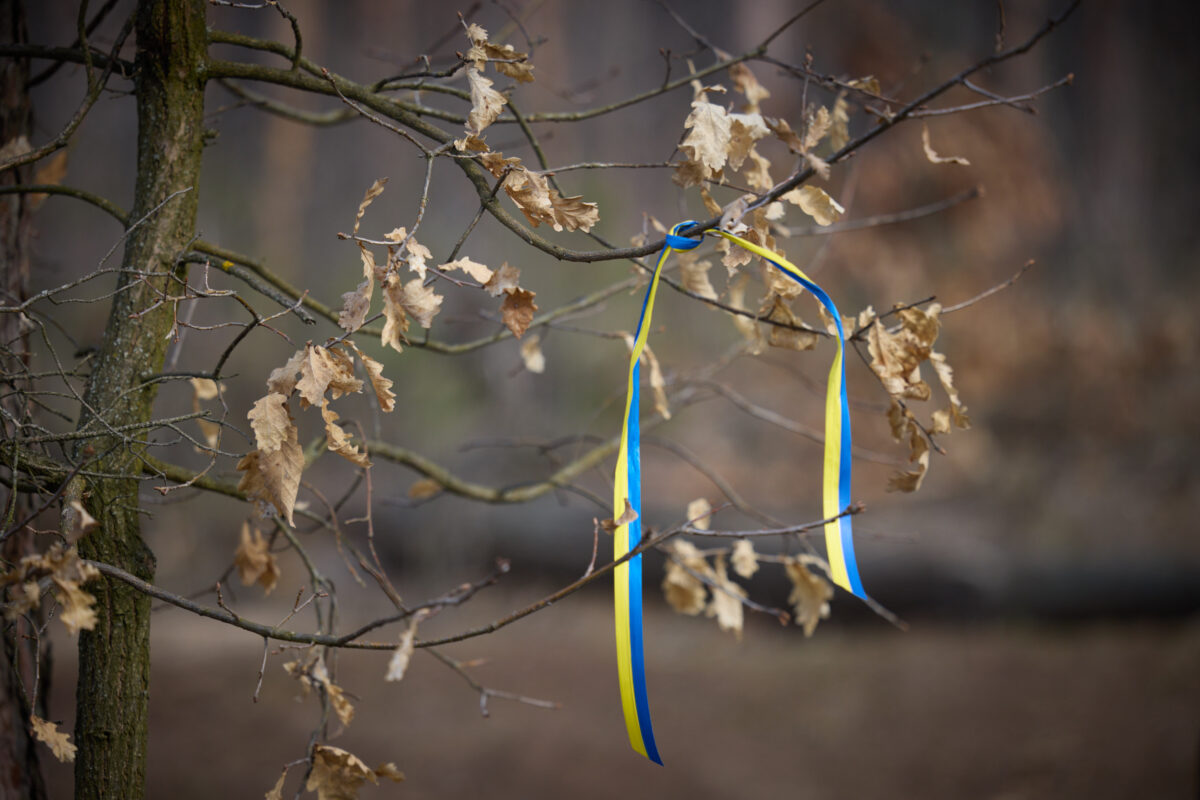Every person, business, and organization in Ukraine has had to make dramatic changes and adapt to the new realities presented by Vladimir Putin’s decision to wage full-scale war against the country. This is the story of the challenges faced by Ukraine’s national suicide prevention hotline, Lifeline Ukraine, over the last 14 months of war with Russia.
As the initial mission of Lifeline Ukraine was specifically to provide support for those serving in the armed forces of Ukraine since 2014, many of the consultants working at Lifeline Ukraine are themselves veterans. On the eve of Russia’s all-out invasion, they were recalled to the military, leaving the organization with a shortfall of people. At the same time, many other staff members were looking to find safety, either in safer parts of Ukraine or over the border in the EU, stretching our resources even further.
To help us over this period, the national suicide prevention hotlines of Israel and Lithuania stepped in to take on calls to Lifeline Ukraine. We also managed to bolster our ranks by adding a couple of new psychologists and by returning some former colleagues to the team. Despite all of these challenges, there was never a moment when Lifeline Ukraine was not open and supporting people in times of need.
After Ukraine defeated Russia in the Battle for Kyiv, the horrors of Russian occupation in northern Ukraine became known to the world through examples like Irpin and Bucha. We have since seen evidence of similar atrocities across the country in all areas liberated from Russian occupation. This has shaped the development of Lifeline Ukraine and led to additional training as Ukrainian society and the country’s military cope with the aftermath of Russian war crimes.
Since the full-scale invasion began, the team at Lifeline Ukraine have learned how to help support those who have been displaced by the war. Individuals who have been displaced by the invasion are typically affected by feelings of loss, particularly for familiar things like their place of work, school, or friends. to understand how this issue affects society as a whole, we need to understand that more than ten million Ukrainians have been forced to flee their homes. Many no longer have homes to go back to.
We also decided to build on our existing knowledge of helping people with PTSD, which affects civilians as well as military, and to add to our knowledge of how to help the bereaved. One topic that had to be covered extensively in our training seminars is the issue of sexual violence. The pattern of war crimes committed by the occupying Russian forces is more or less identical everywhere, with sexual violence extremely widespread along with torture. Lifeline Ukraine is there for the victims.
The other very marked effect of the invasion on the operations of Lifeline Ukraine has a surge in demand for our services. Prior to February 2022, we used to average roughly 1,000 instances of support per month. Over the last year of full-scale war, this figure has grown to a new average of roughly 3,000 instances of chat and call support provided per month. Due to spikes related to various events, the number can even climb as high as 5,000 interactions in a single month. Lifeline Ukraine began as a project to provide support for any Ukrainian experiencing a turbulent emotional period; it has now become a vital national resource.
The truth is that Lifeline Ukraine will always be needed. The horrors of the last 14 months will not be washed away by the euphoria of eventual victory. Ukrainian society will need time to adjust and will remain deeply traumatized for many years to come. People in post-conflict countries can find themselves affected by their experiences even a decade after the end of hostilities.
While funding for Ukraine’s national suicide prevention hotline has previously come from the international donor community, this model is not sufficient for the growing needs of Lifeline Ukraine. It is now time for the public, both in Ukraine and abroad, to help. Together, we must fund not just the continued operations of Lifeline Ukraine, but also our inevitable expansion as we look ahead in anticipation of ever-increasing volumes of calls and chats. To that end, we have launched a crowdfunding effort on Patreon, where donors can pledge $25, $50, or more, on a monthly basis.
In additional to our crowdfunding campaign, we also hope to see the business community support Lifeline Ukraine by building a Corporate Coalition. The details of this initiative can be discussed directly with Lifeline Ukraine Founder and Director Paul Niland via email (paul@lifelineukraine.com). The psychological toll of Russia’s criminal invasion is already devastating and will remain a long-term issue for Ukraine. Your backing can help make sure Ukrainians have the professional support they need as the nation seeks to heal.
